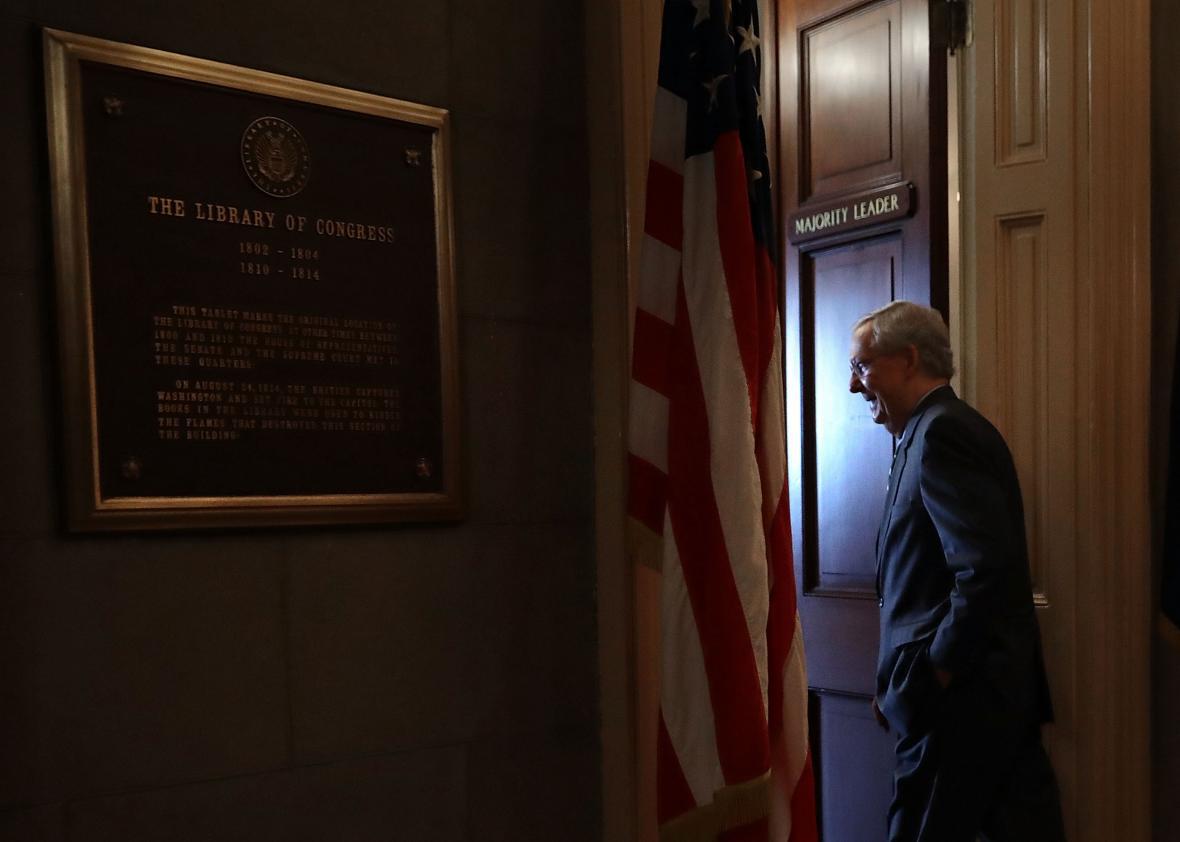After spending seven years attacking Obamacare’s unpopular individual mandate for requiring Americans to buy insurance, Senate Republicans have decided to replace it with a rule that could be even more politically toxic.
Under the proposal, Americans who let their health insurance lapse for 63 days over the previous year will have to wait at least six months before they can get coverage again—even if they’re deeply ill and in need of medical attention. The rule is designed to prevent people from waiting until they are sick to buy insurance and is essentially a more stringent version of restrictions already in place thanks to the Affordable Care Act. It was included in a new, revamped draft of the Senate GOP’s health care repeal bill released on Monday morning, and—at the risk of speculating—I am guessing it will poll about as well as lighting leukemia patients on fire.
After the Senate released its draft legislation last week, both fans and critics pointed out a glaring flaw: The bill kept Obamacare’s regulations guaranteeing coverage to Americans with pre-existing conditions—but didn’t include any rules to make young, healthy people buy insurance in order to balance out the market. Obamacare, of course, tries to accomplish this with the individual mandate, which makes people get covered or pay a small tax penalty. But after railing against this weak nudge as a tyrannical imposition on personal liberty for the better part of a decade, Republicans had to junk it. If they didn’t do anything to make young people get coverage, however, their legislation risked sending the insurance market into a death spiral—not the imaginary death spiral Republicans accuse the law of having set off, but a real one.
And as the GOP is obviously learning, it’s really hard to come up with a solution to this problem that both works and is politically palatable. Threatening the uninsured by locking them out of the market for six months may get a few more twentysomethings to sign up for coverage, since they won’t be able to get it in an emergency. But this solution is now generating headlines like “Trumpcare’s Newest Provision Might Be Its Most Odious.” As New York’s Eric Levitz puts it: “Instead of coercing Americans into buying insurance through a small financial penalty, the GOP would do so by locking some cancer patients out of access to insurance for a potentially fatal amount of time.”
This is ever-so-slightly unfair. Under current law, uninsured Americans who get cancer still have to wait until the next open-enrollment period to buy insurance coverage unless they qualify for an exception (for instance, if they lose their previous insurance because they got fired). The main difference with the new Republican approach is that even people who try to sign up for a health plan during open enrollment will have to wait six months before their insurance takes effect if they didn’t have continuous coverage over the past year.
Another way to put: Under Obamacare, you’re better off getting sick closer to open enrollment. Under Trumpcare, you’re waiting at least six months to get insurance no matter what. The policy approach is more vicious by increments. But by making some desperately sick people wait even longer than they would have to now for coverage, the optics seem orders of magnitude worse.
Health care: Nobody knew it could be so complicated.
